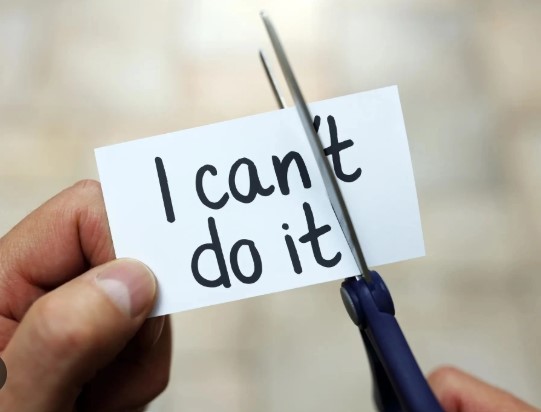What Is Self Esteem
And How To Be More Confident
You make a mistake at work, a friend criticizes you or you embarrass yourself during a PTA meeting.
We’ve all been there. There are plenty of situations in life when our self-esteem takes a hit and we struggle with how to be more confident.
But what exactly is self-esteem?
Whether it’s going up, down or hovering somewhere in the middle, our self-esteem impacts how we view ourselves. Self-esteem is an important building block for many things: Our confidence in our abilities, our sense of self-worth and how we compare ourselves to others.
Low self-esteem — when you’re critical of yourself — can develop over time, but you can bring it back up by changing the way you perceive yourself and becoming aware of negative thoughts.
And having good self-esteem isn’t just feeling good about yourself. Your sense of self-worth can profoundly affect your mental health too.
At its core, self-esteem is not just about feeling good about yourself; it’s about acknowledging your inherent worth and embracing the unique qualities that make you who you are. It’s the unwavering belief in your abilities, the inner assurance that you can overcome challenges, and the self-assurance that empowers you to pursue your goals with determination.
But the journey towards building and maintaining self-confidence is full of ups and downs. It’s a path marked by both triumphs and trials, successes and setbacks. It requires practice, patience, and a commitment to nurturing your self-esteem. It’s about recognizing that setbacks are not the end of the road but growth opportunities, and that success is not just about achieving a certain outcome but also about the progress you make along the way.
Tips To Build Confidence
Practice Self-Compassion
Self-compassion is the gentle art of treating ourselves with the same understanding, patience, and empathy that we extend to our friends and loved ones. It’s about embracing our flaws, acknowledging our mistakes, and recognizing that these are natural parts of the human experience.
Practicing self-compassion begins by noticing this internal dialogue and actively working to change it. When faced with challenges or setbacks, treat yourself with the same warmth and understanding you would offer to a friend.
Replace self-criticism with self-encouragement. Remember that everyone faces difficulties, and no one is exempt from making mistakes. Instead of dwelling on the negative aspects, focus on the lessons you can learn and the growth you can achieve.
Set and Achieve Small Goals
Imagine the sense of accomplishment that washes over you when you cross items off your to-do list. Now, amplify that feeling by setting and achieving small goals that align with your broader aspirations. Setting and accomplishing these smaller milestones not only propels you forward but also fuels your self-confidence along the way.
The key to this strategy lies in breaking down larger, often intimidating goals into manageable steps. Let’s say you aspire to learn a new language. Instead of fixating on becoming fluent right away, start with a small goal, like learning ten new words or practicing for fifteen minutes daily. Achieving these bite-sized objectives provides a sense of progress and achievement that encourages you to keep going.
Practice Positive Affirmations
The words we say to ourselves hold a lot of power. Our self-talk shapes our perceptions, influences our actions, and ultimately impacts our self-confidence. This is where positive self-affirmations come into play—a simple yet potent tool that can transform your inner dialogue and boost your self-esteem.
Think of self-affirmations as personalized, uplifting mantras. These are statements that reflect your strengths, values, and aspirations. By consistently repeating positive self-affirmations, you’re rewiring your brain to focus on your capabilities and worth rather than dwelling on self-doubt or criticism.
Develop a Growth Mindset
The concept of a growth mindset, popularized by psychologist Carol Dweck, has transformative implications for self-confidence. At its core, a growth mindset is the belief that your abilities and intelligence can be developed through effort, learning, and perseverance. This perspective encourages you to embrace challenges, see failures as opportunities for learning, and view effort as the path to mastery.
Over time, as you integrate this mindset into your daily life, you’ll find that setbacks no longer deter you. Instead, they fuel your determination to improve and demonstrate that you possess the tools to overcome any obstacle.
Surround Yourself With Positive Influence
The people you surround yourself with have a significant impact on your self-confidence and overall well-being. Positive influences uplift you, inspire you, and provide a supportive environment that nurtures your growth. On the other hand, negative or unsupportive individuals can drain your energy, undermine your self-esteem, and impede your progress.
Consider the friends, family members, and colleagues in your life. Are they supportive of your goals and dreams? Do they encourage you to push your limits and embrace new challenges? Surrounding yourself with people who believe in your potential can have a profound effect on your self-confidence.
Practice Self-Care
In the pursuit of self-confidence, it’s easy to overlook the importance of self-care. But caring for your physical, mental, and emotional well-being is a fundamental aspect of building and maintaining a strong sense of self-esteem. When you prioritize self-care, you’re sending a clear message to yourself that you deserve love, attention, and nurturing.
Self-care encompasses a wide range of activities that promote your overall well-being. These activities can include getting enough sleep, nourishing your body with nutritious foods, engaging in regular physical activity, and finding ways to manage stress. When you invest in these practices, you’re enhancing your physical health, which in turn has a positive impact on your mental and emotional states.
Final Thoughts
Building lasting self-confidence is an ongoing process that requires patience, self-awareness, and dedication. By implementing these tips into your daily life, you can gradually transform your self-perception and develop a stronger sense of self-esteem. Remember that building self-confidence is a journey, and each step you take brings you closer to realizing your full potential.
Need a little help? Contact us at Peaceful Summit Counseling.
There’s a path that’s best for you, and we can help you find it.
Adapted from:
“How to be More Confident and Build Self Esteem” – cleavelandclinic.org
“7 Proven Tips for Building Lasting Self-Esteem and Boosting Your Confidence” – campuspress.yale,edu



